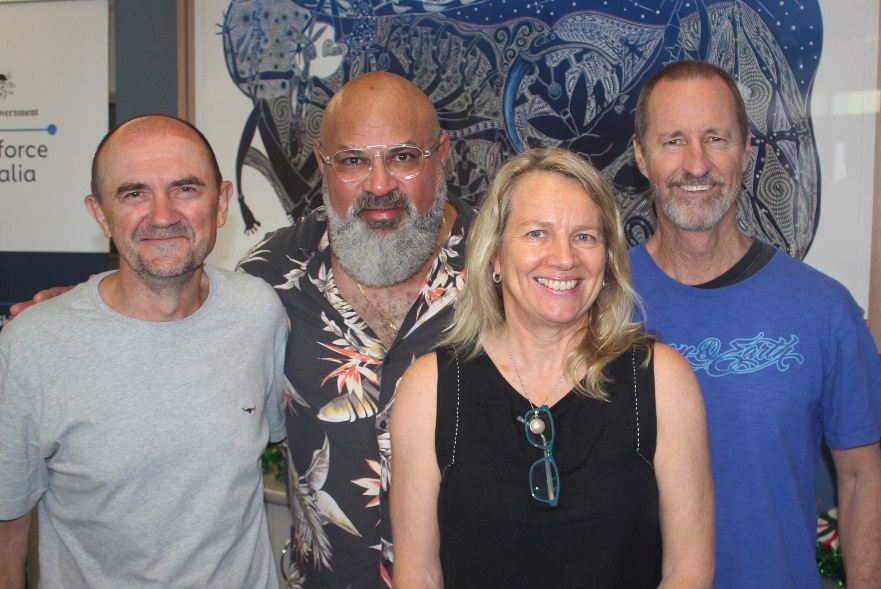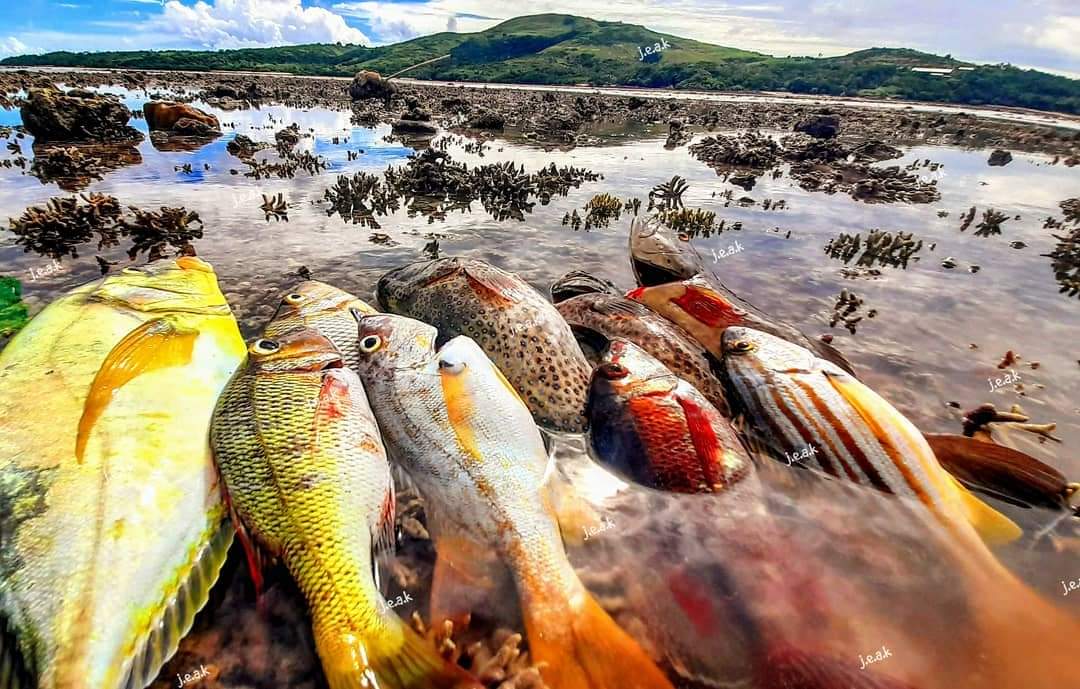Gathering traditional fishing data in the Torres Strait will help local communities improve their stewardship of fisheries resources for food security, cultural purposes and balanced management of traditional, recreational and commercial fishing.
Traditional Owners of the Torres Strait Islands are leading efforts to gather data about the region’s traditional fishing catch to improve fisheries management and protect culturally important food species for food security in a changing climate.
Consultation is underway as part of an FRDC project (2022-045) seeking input from regional, community and island stakeholders about the design of a data collection system to ensure it will support their needs and will be easy to use.
Co-leaders of the project are Kenny Bedford, a Torres Strait Traditional Owner and fisher, and Professor Natasha Stacey, a marine social scientist at Charles Darwin University.

The Australian Fisheries Management Authority (AFMA) is jointly investing with FRDC, following a 2021 scoping study funded by AFMA which found many Torres Strait regional stakeholders supported having more information about their traditional catch.
Community stewardship
Kenny says community members recognise information is important to managing the region’s fisheries resources and protecting fish populations.
Traditional fishing underpins community livelihoods, providing essential food and nutrition, and supporting cultural and spiritual practices.
“As custodians of the resource, we recognise we need more data about the traditional catch and the different species,” explains Kenny. “It will help us to make better decisions for the resource, including what might be available for recreational or commercial catches.”
Data is a priority for key commercial species, such as Spanish Mackerel (Scomberomorus commerson), Coral Trouts (Plectropomus & Variola spp.) and Tropical Rock Lobsters (Panulirus except P. cygnus spp.), as well as for other traditionally fished species that communities rely on.
App design
“Past efforts to gather data have used observers or paper records, and neither have been particularly effective,” says Kenny.
The current project is evaluating whether a smartphone app would be well supported by local communities, and what features they see as important. He has already flagged privacy and data security as essential features.
After a pilot consultation in August 2023, the project team will visit up to 20 communities between Cape Yorke and Papua New Guinea early in 2024.
If the app is to be effective, Kenny says the people using it need to have ownership of the design process. “We need to empower local communities to collect the information. And we need to listen to what they think the barriers to using the app might be.”

This project is anticipated to lead to a later program of activity involving the design and implementation of the app, followed by the gathering and analysis of data.
Value in collaboration
FRDC Senior Research Portfolio Manager Josh Fielding, says the project was put forward through the Torres Strait Scientific Advisory Committee, in partnership with AFMA.
“It has provided a good opportunity for us to work with AFMA, and with the Torres Strait Scientific Advisory Committee and Torres Strait Islanders.
“FRDC is keen to support the collection of data across all fisheries, including traditional fisheries, to underpin improved fisheries management. In gathering data it’s important that it will be used in ways that offer value to the people providing that information,” says Josh.
Fisheries management in the Torres Strait is complex, with regional, state and national regulations overlaid. However, the Torres Strait Regional Authority (TSRA) is moving towards full indigenous ownership of local fisheries resources.
Josh notes that Indigenous ownership of fisheries resources is more advanced in the Torres Strait than in many other regions in Australia. Improved data collection provides a potential value proposition for the community for better decision-making about local fisheries resources.
Related FRDC Projects
FRDC Project 2022-045: Measuring non-commercial fishing catches (traditional subsistence fishing) in the Torres Strait in order to improve fisheries management and promote sustainable livelihoods.





